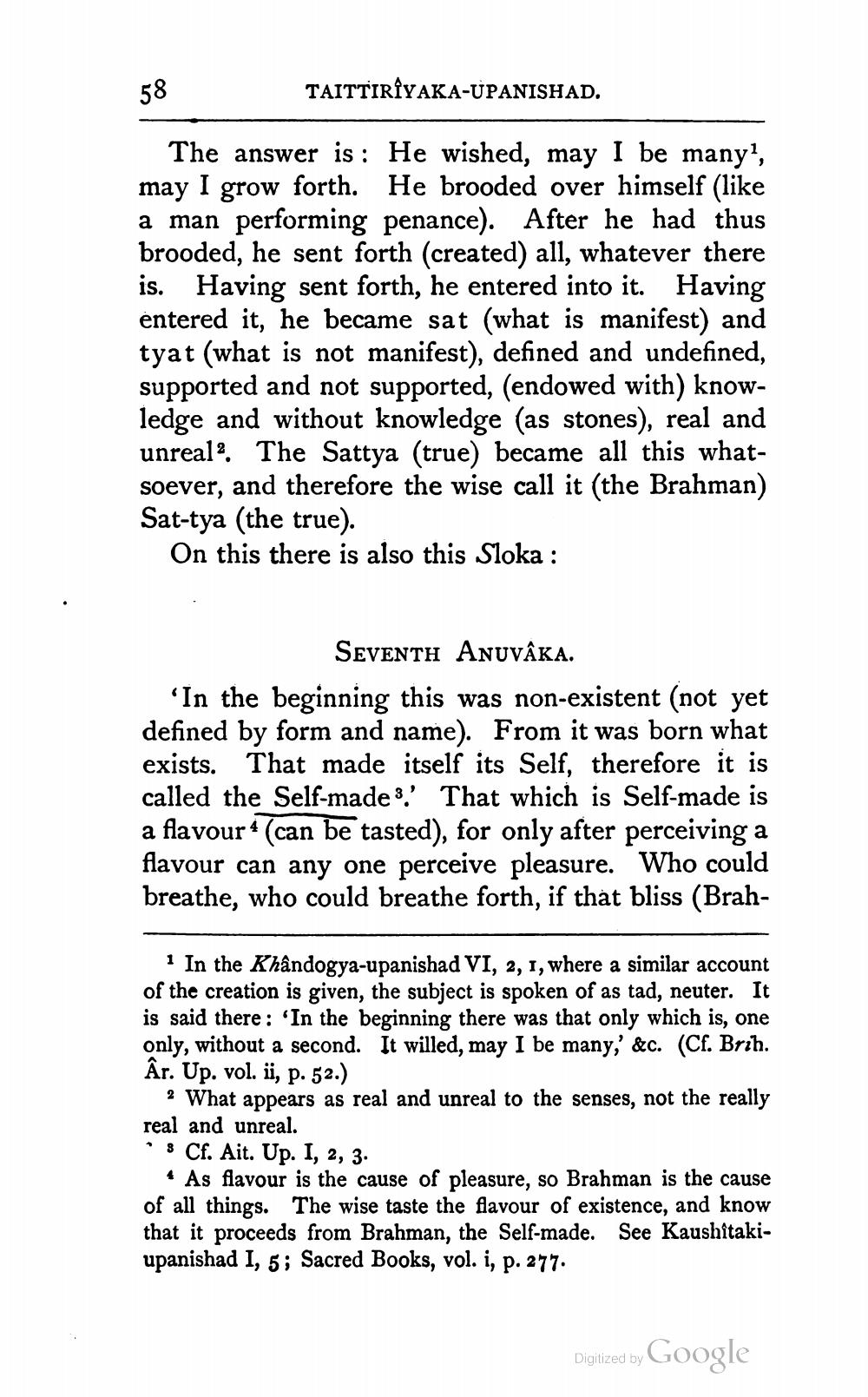________________
58
TAITTIRÎYAKA-UPANISHAD.
The answer is : He wished, may I be manył, may I grow forth. He brooded over himself (like a man performing penance). After he had thus brooded, he sent forth (created) all, whatever there is. Having sent forth, he entered into it. Having entered it, he became sat (what is manifest) and tyat (what is not manifest), defined and undefined, supported and not supported, (endowed with) knowledge and without knowledge (as stones), real and unreala. The Sattya (true) became all this whatsoever, and therefore the wise call it (the Brahman) Sat-tya (the true).
On this there is also this Sloka :
SEVENTH ANUVÂKA. 'In the beginning this was non-existent (not yet defined by form and name). From it was born what exists. That made itself its Self, therefore it is called the Self-made 3.' That which is Self-made is a flavour (can be tasted), for only after perceiving a flavour can any one perceive pleasure. Who could breathe, who could breathe forth, if that bliss (Brah
1 In the Khândogya-upanishad VI, 2, 1, where a similar account of the creation is given, the subject is spoken of as tad, neuter. It is said there : 'In the beginning there was that only which is, one only, without a second. It willed, may I be many,' &c. (Cf. Brih. Âr. Up. vol. ii, p. 52.)
? What appears as real and unreal to the senses, not the really real and unreal. * 8 Cf. Ait. Up. I, 2, 3.
* As flavour is the cause of pleasure, so Brahman is the cause of all things. The wise taste the flavour of existence, and know that it proceeds from Brahman, the Self-made. See Kaushitakiupanishad I, 5; Sacred Books, vol. i, p. 277.
Digized by Google




